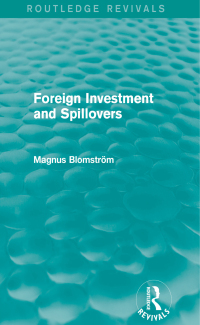Question
GOTLIN v. LEDERMAN UNITED STATES COURT OF APPEALS FOR THE SECOND CIRCUIT 483 FED. APPX. 583 (2012) CASE 25-1 FACTS: Gary D. Gotlin, an administrator
GOTLIN v. LEDERMAN UNITED STATES COURT OF APPEALS FOR THE SECOND CIRCUIT 483 FED. APPX. 583 (2012) CASE 25-1 FACTS:
Gary D. Gotlin, an administrator of the estate of a decedent, and the deceaseds surviving spouse, Giuseppe Bono, alleged the misrepresentation of a particular form of cancer treatment, Fractionated Stereotactic Radiosurgery (FSR). The plaintiffs further asserted that this deceptive marketing led the decedent to unnecessarily undergo an ineffective and harmful form of radiation therapy. According to the plaintiffs, the marketing of the cancer treatment, which included brochures, videos, advertisements, seminars, and Internet sites, made unrealistic claims about the treatments success rates. Specifically, the defendants made deceiving claims that the FSR treatment had success 539 kub2384x_ch25_536-560.indd 539 11/3/14 2:07 PM Final PDF to printer540 (continued) rates of greater than 90 percent in treating pancreatic cancer. The district court dismissed the plaintiffs claims, and the plaintiffs subsequently appealed. ISSUE: Did the Defendants Engage in Deceptive Advertising when Marketing their Cancer Treatment? REASONING: New York business law states that deceptive practices are those likely to mislead a reasonable consumer acting reasonably under the circumstances. the court reviewed the expert testimony provided in the lower court to determine whether the way in which the FSR treatment had been advertised was fraudulent or misleading. while reviewing the testimony of two medical experts, Judge Katzmann concluded that the therapy in question was not as highly successful as it had been marketed to be. the following excerpt from Judge Katzmanns court opinion highlights the evidence the judge relied on in reaching his conclusion: This claim as to FSR therapys 94% success rate in treating pancreatic cancer is materially identical to claims made in defendants marketing brochures. Moreover, while the brochures at one point define success in a relatively circumscribed manner, including cases in which the cancer stopped growing or shrunk but did not disappear altogether, at other points the brochures suggest that FSR treatment will yield much broader successes than merely arresting the growth of cancer (describing possibilities never dreamt before, superb results, great effectiveness, and superior outcomes). In addition, Drs. Harrison and Gliedmans expert report states several times that FSR therapy was unnecessary, either because it had no curative potential with regard to a particular patients circumstances or because the patient in question presented with incurable disease generally. Accordingly, in the opinion of Drs. Harrison and Gliedman, those patients had been subjected to widespread radiation therapy without any chance of benefit. By making such statements, Drs. Harrison and Gliedman impliedly impugn the accuracy of defendants brochures representations that FSR therapy had achieved superb results in instances in which normal radiation has not been successful. Importantly, Drs. Harrison and Gliedman did not merely represent that FSR treatment had not proven effective for the particular patients in question, but that defendants marketed FSR treatment as having a very high rate of success, for so-called hopeless cases, to patients who, in fact, had incurable cancer. DECISION AND REMEDY: The court found that a genuine issue of material fact existed about whether the marketing of the FSR treatments success rates was materially deceptive to a reasonable consumer and whether plaintiffs suffered injury as a result of the alleged misleading advertising. consequently, the court vacated the district courts judgment and remanded. SIGNIFICANCE OF THE CASE: Deceptive advertisements can lead consumers to make decisions that negatively affect their health. court should be particularly vigilant in considering whether scientific evidence supports the contentions of medical advertisements.
Do you think the company's advertising for the cancer treatment in this case was ethical given the facts of the case?
Step by Step Solution
There are 3 Steps involved in it
Step: 1

Get Instant Access to Expert-Tailored Solutions
See step-by-step solutions with expert insights and AI powered tools for academic success
Step: 2

Step: 3

Ace Your Homework with AI
Get the answers you need in no time with our AI-driven, step-by-step assistance
Get Started


